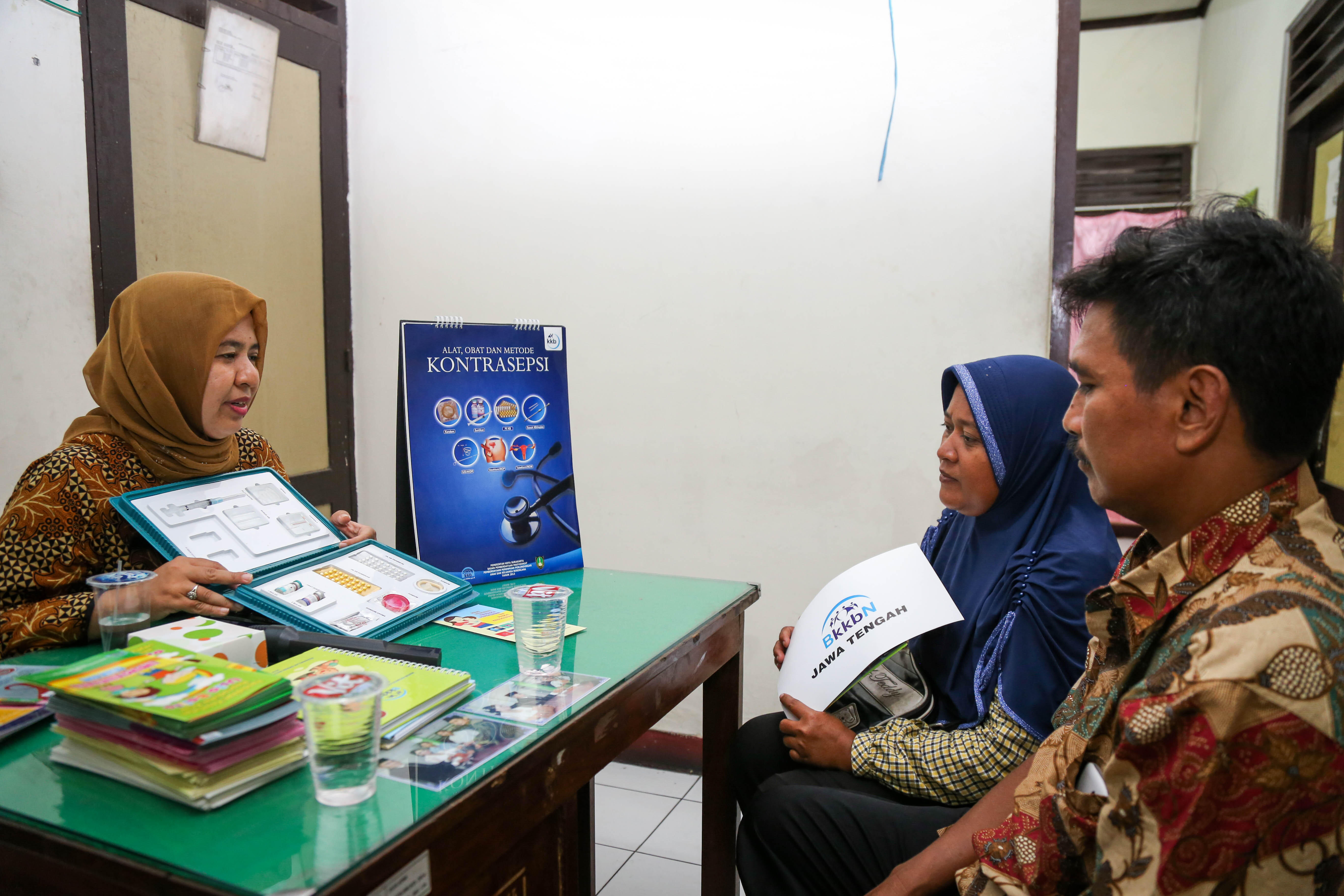Indonesia has been globally recognized as one of the pioneers in family planning for its success in slowing down the rate of population growth. In turn, it has changed social norms, empowered women, improved women’s health, enhanced the wellbeing of families, and increased the quality of human resources. The Indonesian government’s firm commitment to the Family Planning (FP) 2020 partnership and its goal of ensuring access to family planning and reproductive health information, supplies, and services has further improved national results. However, the COVID-19 pandemic might reverse the progress achieved.
The Pandemic Effect on Family Planning
Started in the early 1970’s, Indonesia’s family planning programme has increased contraceptive use from non-existent to more than 60 percent within four decades. The programme has received accolades for rapidly expanding access to and use of modern contraceptives. A UNFPA-supported study by Budi Utomo, et. al in 2019 noted that it has led to the reduction of total fertility rate from 5.6 children in 1970s to 2.38 children in 2017, and a 38-43 percent reduction of maternal deaths from 1970-2017.
The COVID-19 pandemic is threatening to reverse this long-term progress, however. The crisis has disrupted the supply chain of contraceptives as well as health services all over the world. A recent United Nations Population Fund (UNFPA) predicted that if lockdown continues for six months, 47 million women in low and middle-income countries may not be able to access contraceptives. It could result in 7 million unintended pregnancies and 31 million additional cases of gender-based violence.
FP2020: A Rights-based Global Commitment
Women and girls have the fundamental right to make their own reproductive decisions. Family planning can protect that right, and save lives.
With that principle, the London Summit on Family Planning was held In July 2012, by the United Kingdom (UK) Government and the Bill & Melinda Gates Foundation, with support from UNFPA and other partners. Over 20 governments made a commitment to provide an additional 120 million women in the world’s poorest countries access to lifesaving family planning information, services and supplies by 2020. To date, there are more than 69 countries, donors and other stakeholders that have formally committed to FP2020.
Nine countries are currently on track to achieve the FP2020 goals, while 13 countries are close to reaching them, according to the 2019 progress report. Additionally, the number of modern contraceptive users in 69 focus countries has grown by 53 million since FP2020 was launched, including 9 million additional users in 2018-2019.
FP2020 in Indonesia
The Indonesian delegation established the FP2020 Country Committee, which is chaired by the National Population and Family Planning Board (BKKBN) and co-chaired by representatives from various organizations, including UNFPA, Yayasan Cipta, Global Affairs Canada and youth organizations.
“This is not only the commitment of the Indonesian government, but all of us. We hope that all stakeholders support and play active roles in realizing Indonesia’s commitment to family planning,” Eni Gustina, Deputy of Family Planning and Reproductive Health of BKKBN, said.
In 2017, Indonesia concretely emphasized its commitment in six main areas: 1) increasing financial resources for the family planning programme, 2) ensuring universal coverage, 3) expanding contraceptive method mix, 4) strengthening the supply chain management, 5) improving adolescent reproductive health, and 6) conducting South-South exchange. The most recent assessment in July showed that the commitment in areas 1, 4, and 6 was fully achieved, while the rest was partially achieved.
By 2019, the Track20’s Family Planning Estimation Tool (FPET) model assessed that Indonesia has reached over 2.2 million additional users, slightly lower from the target of 2.8 million.
Next: FP 2030
As FP2020 is reaching its final year, Indonesia started the renewal of its commitment to FP2030 through a virtual meeting held a few days before the World Contraception Day, whose commemoration this year seeks to raise awareness on contraception, particularly among youth. The future recommitment process focuses on a rights-based approach with equity at the core, which seeks to empower women and girls and engage men through country-led equitable partnerships with a broad range of stakeholders.
"To ensure that the recommitment process reflects an inclusive and transparent process of collaboration…, we need to include civil society, young people, ‘hard to reach’ communities, and other underrepresented populations," Anjali Sen, UNFPA Indonesia Representative, said.
With shared commitments and continuous efforts to strengthen rights-based family planning and improve the reproductive health of young people, universal access to family planning and reproductive health services would someday become a reality.
Riznawaty Imma Aryanty
Reproductive Health Programme Specialist, UNFPA Indonesia


